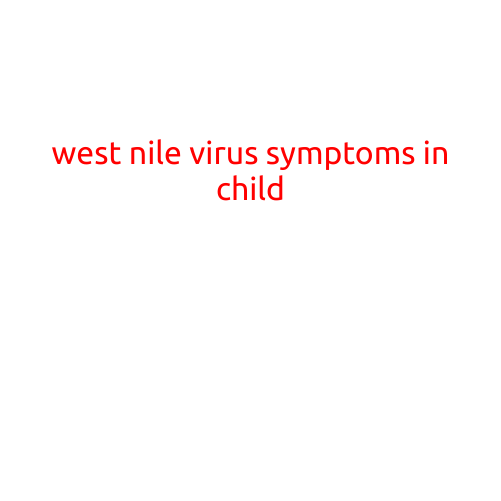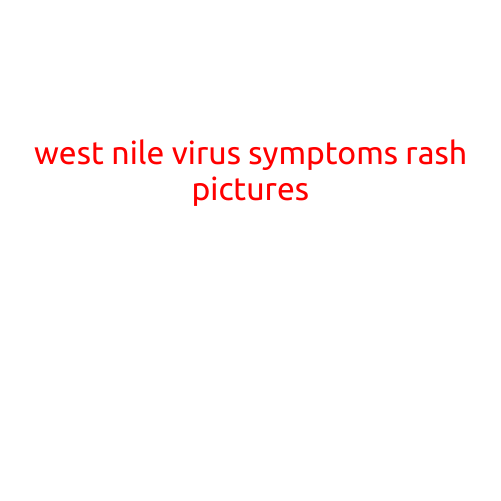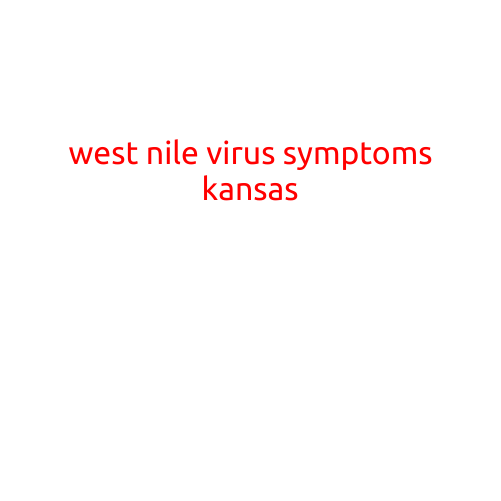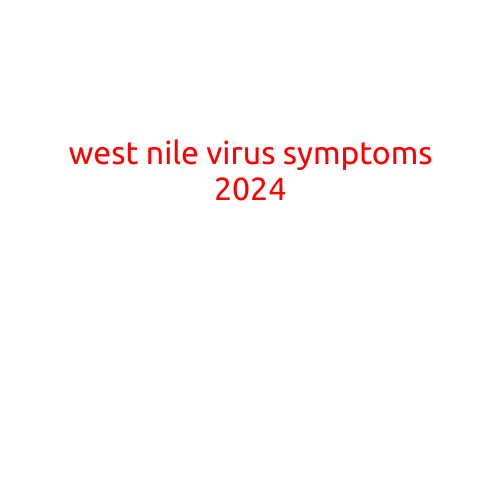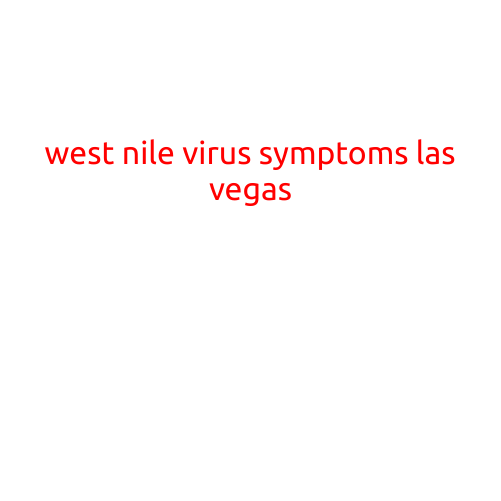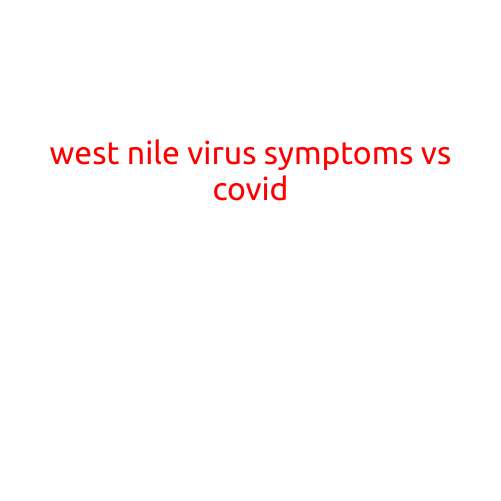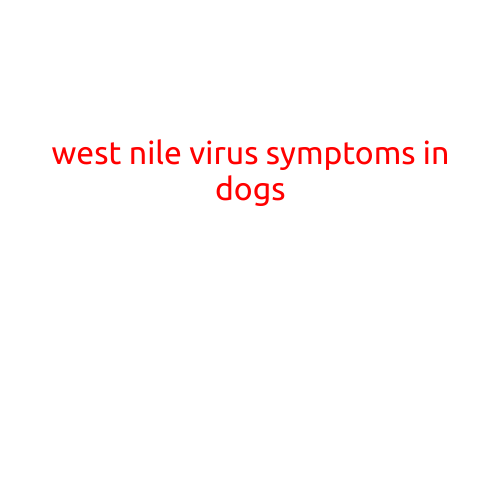
West Nile Virus Symptoms in Dogs: What You Need to Know
As a responsible dog owner, it’s essential to be aware of the various health threats that can affect your furry friend. One virus that you should know about is West Nile virus (WNV), which can infect dogs, particularly in areas where it is common among birds, horses, and humans. In this article, we’ll discuss the symptoms of West Nile virus in dogs, how it’s spread, and what you can do to protect your pet.
What is West Nile Virus?
West Nile virus is a mosquito-borne viral disease that is commonly found in North America, Europe, and Africa. It was first identified in Uganda in 1937 and has since spread to many parts of the world. The virus is transmitted to dogs through the bite of an infected mosquito, typically the Culex species.
Symptoms of West Nile Virus in Dogs
If your dog is infected with West Nile virus, you may notice the following symptoms:
- Fever: A high temperature, usually over 103°F (39.4°C), is one of the earliest signs of infection.
- Stiffness and joint pain: Your dog may exhibit stiffness, especially in the joints, which can lead to difficulty moving or getting up.
- Loss of appetite: Infected dogs may lose their appetite or refuse to eat.
- Muscle weakness: Your dog may show signs of weakness or lethargy, which can progress to muscle paralysis.
- Seizures: In severe cases, dogs may experience seizures or tremors.
- Headache and behavioral changes: Infected dogs may display changes in behavior, such as agitation, restlessness, or depression.
- Nervous system disorders: In rare cases, WNV can cause inflammatory disorders of the nervous system, leading to symptoms like tremors, paralysis, or convulsions.
How is West Nile Virus Spread?
West Nile virus is primarily spread through the bite of an infected mosquito. Mosquitoes become infected when they feed on the blood of birds or other animals that carry the virus. When an infected mosquito bites a dog, it can transmit the virus. Dogs that are most at risk of contracting WNV are those that spend time outdoors, especially during peak mosquito hours (dawn and dusk).
Risk Factors and Prevention
The following factors increase the risk of WNV infection in dogs:
- Age: Older dogs are more susceptible to WNV due to their weaker immune systems.
- Immune system suppression: Dogs with compromised immune systems, such as those with chronic diseases or receiving immunosuppressive therapy, are more vulnerable to WNV infection.
- Outdoor exposure: Dogs that spend more time outdoors, especially in areas with high mosquito activity, are at increased risk.
To protect your dog from WNV, follow these preventive measures:
- Use insect repellent: Apply a dog-specific insect repellent to your pet’s skin and coat to deter mosquitoes.
- Remove standing water: Eliminate any sources of standing water around your home, as mosquitoes need water to breed.
- Wear protective clothing: Dress your dog in a protective jacket or use a bug-proof vest to prevent mosquito bites.
- Use a mosquito net: If your dog spends time outdoors, use a mosquito net to keep them protected.
- Keep your dog indoors: When mosquitoes are most active (dawn and dusk), keep your dog indoors to minimize exposure.
Diagnosis and Treatment
If you suspect that your dog has been infected with WNV, consult with your veterinarian immediately. Diagnosis is typically made through a combination of clinical signs, laboratory tests (such as blood tests and PCR), and imaging studies.
Treatment for WNV-infected dogs is primarily supportive, focusing on managing symptoms and preventing complications. Your veterinarian may recommend:
- Pain management: Medication to alleviate pain and discomfort.
- Fluid therapy: Fluid administration to help maintain hydration and electrolyte balance.
- Antiviral therapy: In some cases, antiviral medication may be prescribed, although its effectiveness is still being researched.
- Physical therapy: Gentle physical therapy exercises to maintain joint mobility and prevent muscle atrophy.
Conclusion
West Nile virus is a serious viral disease that can affect dogs, particularly those that spend time outdoors. By understanding the symptoms, risk factors, and preventive measures, you can help protect your furry friend from this potentially devastating virus. If you suspect that your dog has been infected with WNV, consult with your veterinarian promptly to ensure the best possible outcome.
